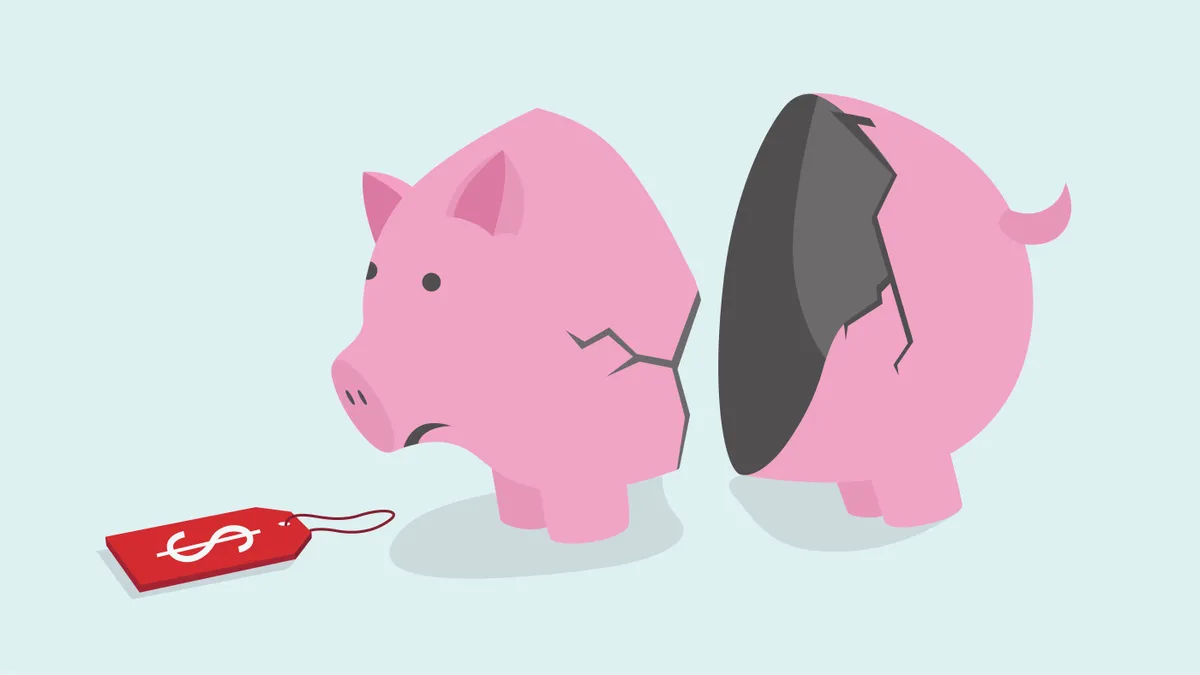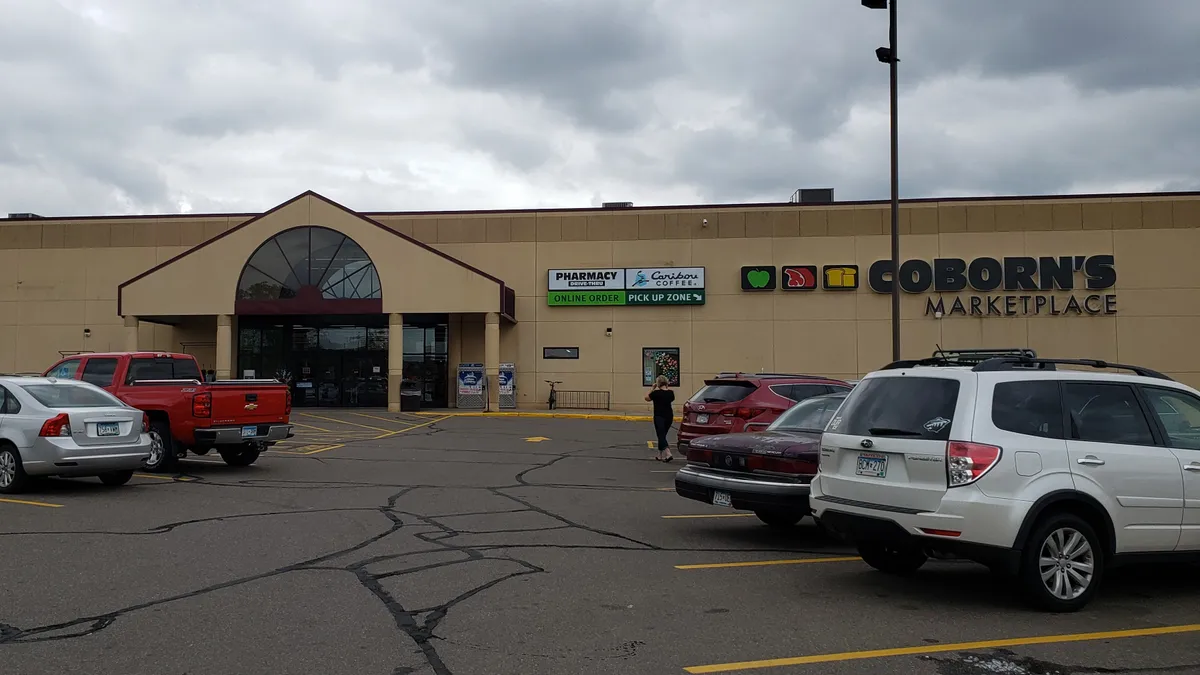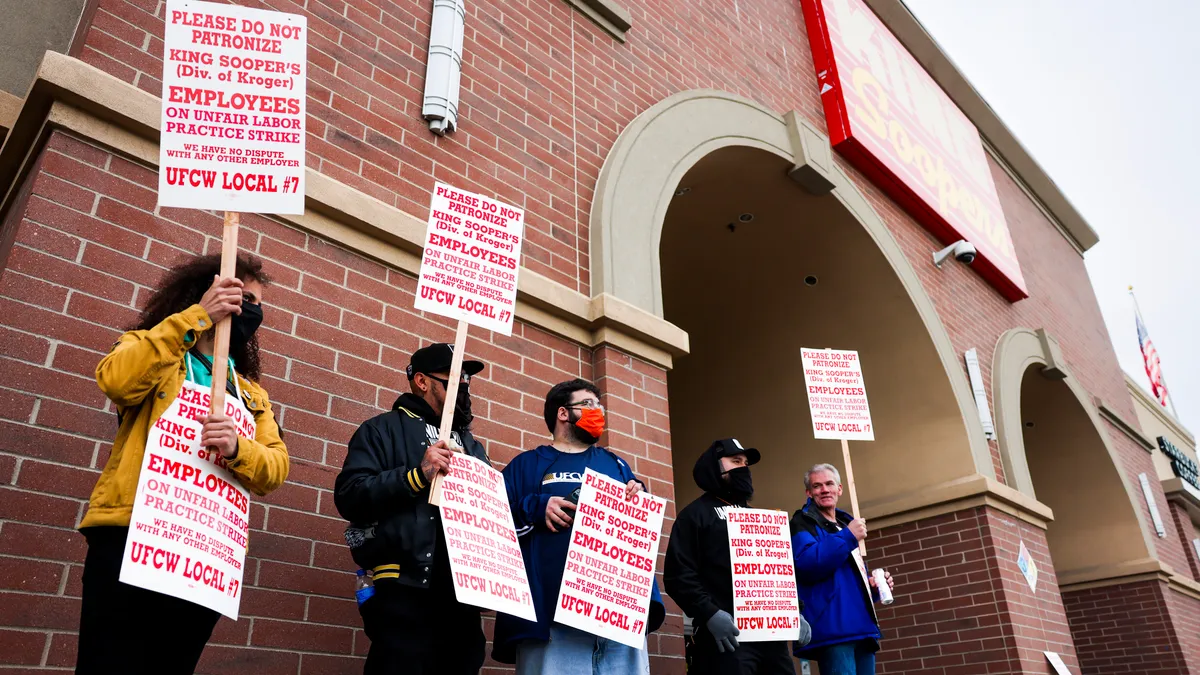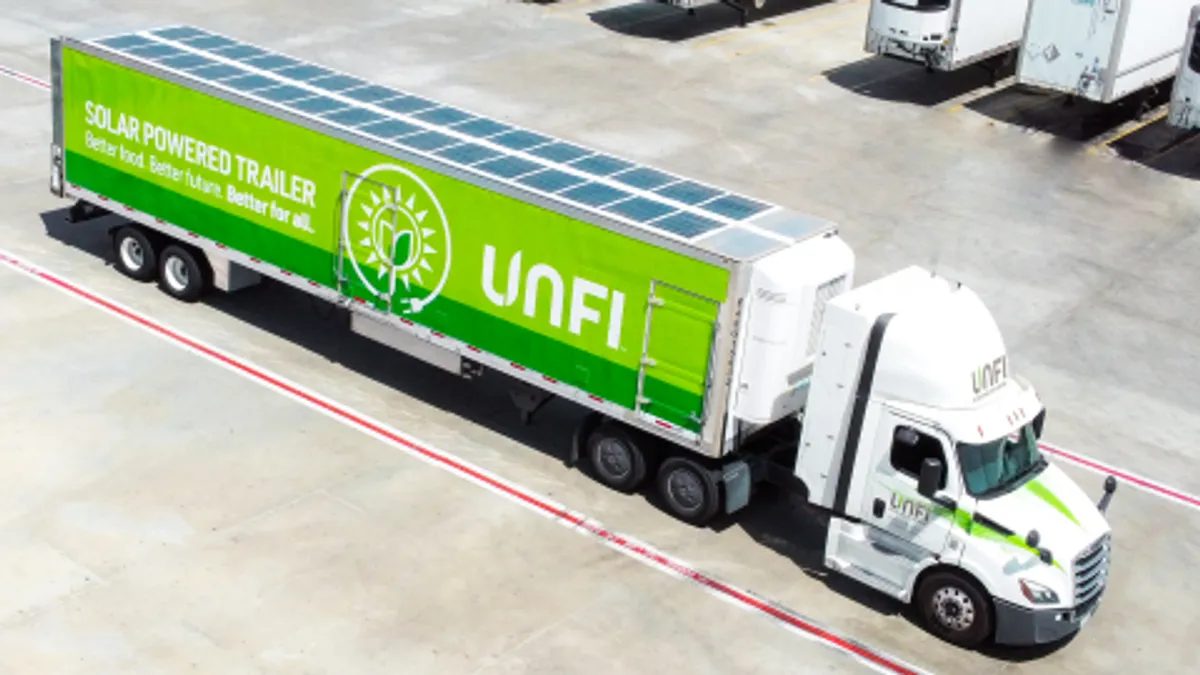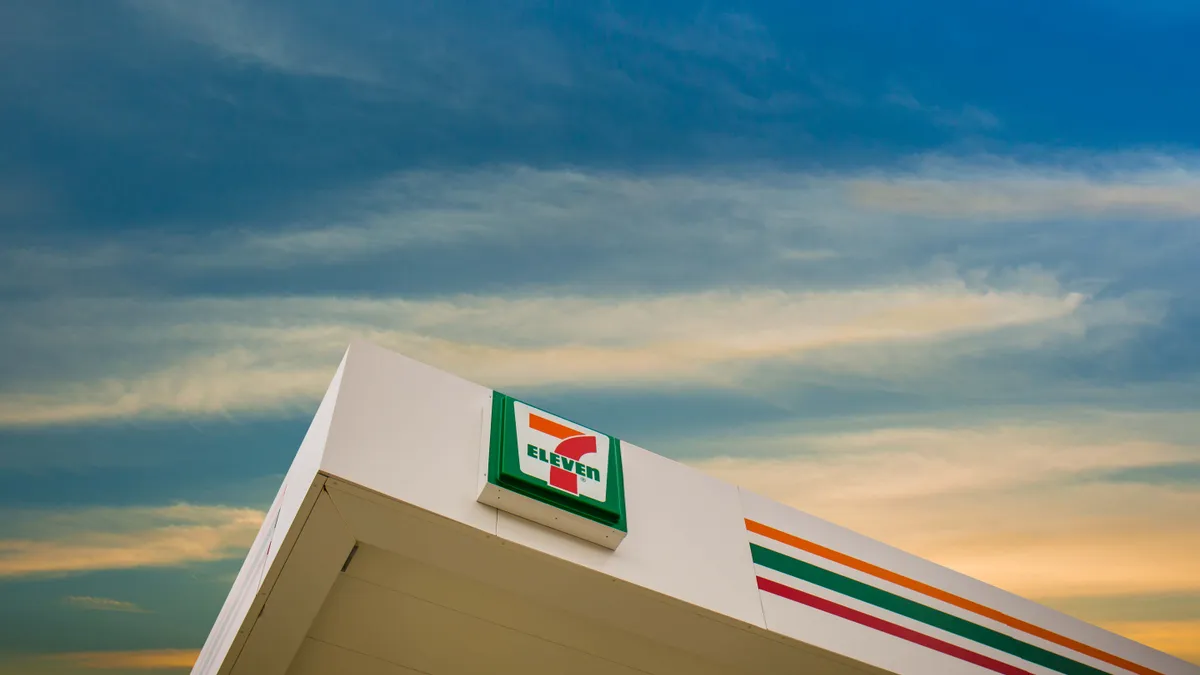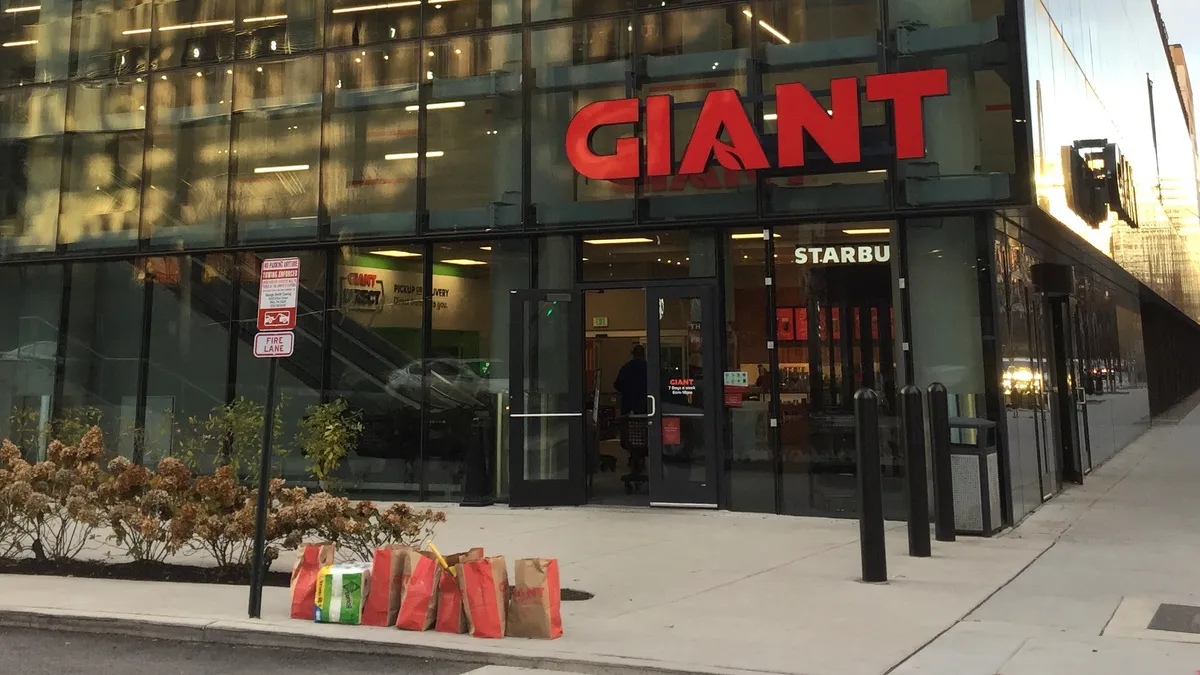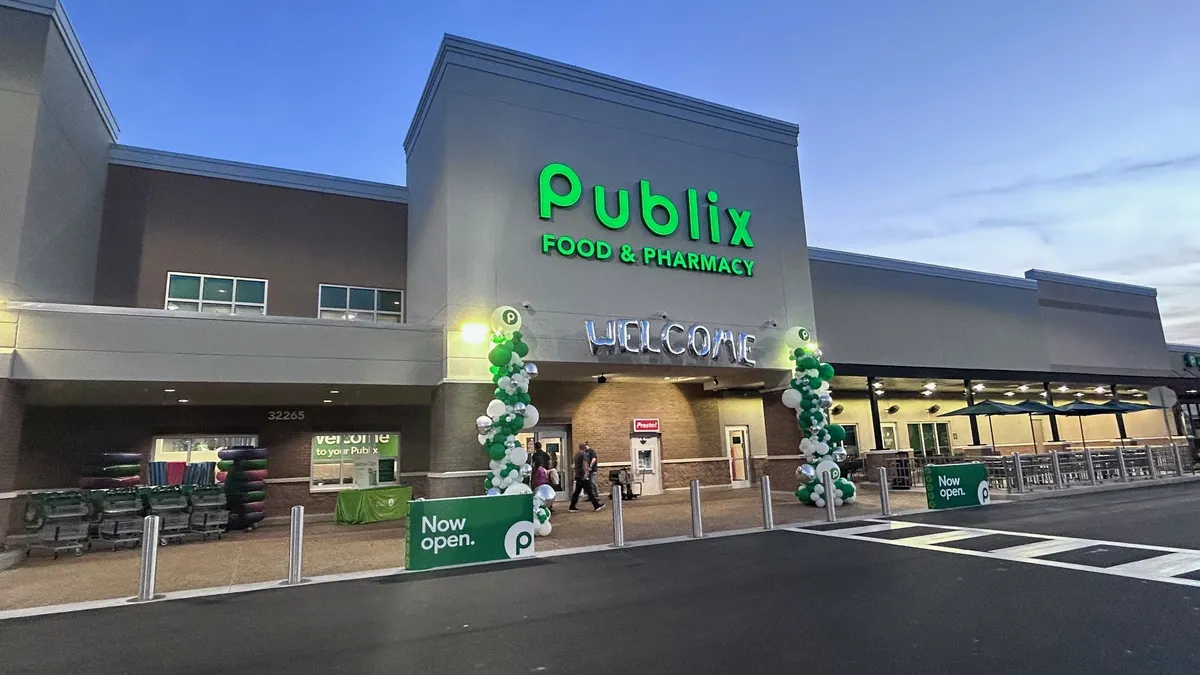Bankruptcies in the grocery industry are accelerating, but the past three weeks have been uncharacteristically frenetic. The corporate bloodletting seems to be over for now. Left behind are three chains that once seemed so promising, felled by a combination of mismanagement, debt, tough competition and overblown expectations.
Although they collectively numbered less than 100 stores, Lucky’s Market, Fairway Market and Earth Fare were significant operators. Fairway was quintessential New York and had legions of passionate shoppers, while Lucky’s and Earth Fare were at the cutting-edge of consumer demand — the natural and organic grocers that promised not to take your whole paycheck.
Perhaps that’s why their demise has so fascinated observers. These were the bright lights of the industry, not the lumbering dinosaurs that spent years refusing to change. Each tried to do what so many industry experts say grocers need to do: Offer a unique, compelling store experience.
The narrative of each company’s downfall is unique, but there are common themes. As retailers scramble to buy up a trove of available stores, they should consider the hard lessons of these past few weeks.
Having a good concept isn't enough
It’s not enough to have a strong store model. That model has to evolve with consumer demand and adjust to local markets. You also have to know its limits.
Fairway and Lucky’s both have a great store experience and a lot of loyal fans, but the concepts didn’t travel well. Fairway’s funky mix of specialty and conventional goods was a hit with New Yorkers. Venture out to the suburbs, though, and the company found that shoppers already had a wide assortment available at their local grocer and didn’t see much need for 60 different types of olive oil.
Lucky’s grew up in Colorado’s crunchy neighborhoods and a smattering of college towns where sipping a beer while shopping was a major draw. But when the company put those stores in top-tier markets with entrenched competitors, they struggled to stand out.
And then there’s Earth Fare, which started out as a warm, community-focused natural grocer and by 50 stores had lost both of those qualities as its owners prioritized rapid growth and stripping costs out of the operation.
Investment capital too often fuels undisciplined growth
Each company’s investors had grand visions of building a nationwide chain, and they tried to make that happen too quickly. Sound familiar? The same thing happened to The Fresh Market, Fresh & Easy and numerous others.
Private equity ownership pushed Earth Fare and Fairway to expand at a pace they clearly weren’t equipped for — and take on significant debt while doing so. Fairway spent more than 70 years carefully building four stores. Under Sterling Investment Partners, which bought an 80% stake in 2007, it was suddenly building an expensive new location each year.
Similarly, Earth Fare built a dozen stores in its first 30 years in business, then more than tripled its growth across two private equity owners. Monitor Clipper Partners appeared to be angling for a buyout when it bought the grocer in 2006. When it couldn’t get that, it sold $300 million worth of the company to Oak Hill Capital Partners, which stepped down even harder on the gas pedal. Earth Fare crashed into Florida at the same time as so many other chains, and its value proposition emphasized health and nutrition in a way that seemed oddly clinical rather than inspiring.
Private equity firms have been poor stewards of many retailers — grocery and non-grocery — but Kroger is no corporate raider. The supermarket chain knows the intricacies of food retail, which made its bet in Lucky’s seem like such a positive sign for the hip natural grocer from Boulder. The failed investment was disastrous for Lucky's, and doesn't reflect well on the Cincinnati-based chain's ability to pick winners.
Traditional grocers aren’t pushovers
Conventional grocers get criticized for evolving slowly. But when it comes to natural and organic assortment, they’ve been better innovators than specialty retailers. They've also sold consumers on the convenience of being able to buy conventional products in the same trip.
Publix wasn’t the sole reason Earth Fare and Lucky’s struggled in Florida, a state where each built more than a dozen stores. But it’s clear the companies, like so many before them, underestimated Publix’s ability to adapt, not to mention its hold over customers. The Lakeland-based grocer has built up a large natural and organic product range, including its own Greenwise brand. It’s also building stores under the same name that seemed to be a direct response to these interlopers and others like it.
Kroger, Ahold Delhaize and Albertsons all have invested deeply in natural and organic private brands. Simple Truth, which many shoppers probably mistake for a national brand, now has its own line of plant-based products.
Good timing and locations are hard to find — and absolutely essential
Specialty retailers may espouse a do-gooder attitude, but the fact is they rely on affluent shoppers. Earth Fare had too many stores located in areas without enough high-income customers nearby to support them. As a result, they struggled to generate the volume they needed to stay afloat.
Lucky’s had solid store locations, but it entered markets well after competing chains were already established, while Fairway’s venture beyond New York seemed to fixate on the wrong locations at the wrong time. The failure to close those non-core locations after the company’s first bankruptcy remains a mystery to this day.
With so many over-stored markets in the U.S., knowing exactly where and when to expand has become a science that even the best data can't predict. There's very little room for error.
Specialty retailers need to take a long hard look in the mirror
Lucky's, Earth Fare, Fresh Thyme Farmers Market and other retailers that make up the "Specialty 2.0" class had a great idea 10 years ago: sell natural and organic products at lower prices than Whole Foods, and have more fun doing it.
But that idea hasn't evolved, and now competitors are offering a lot of the same products and services.
Is it still possible to run a successful nationwide specialty grocer? It's looking harder and harder these days. Whole Foods, the chain that inspired numerous followers, has lost its spark and hasn't grown under Amazon. Sprouts' stock performance has been disappointing despite a rapid buildout.
"Specialty 2.0" needs to upgrade its operating system to "Specialty 3.0." Each company needs to consider how they can stand out in the current marketplace. After enduring its own breakneck expansion and pullback, The Fresh Market has evolved into a European-style gourmet market, a model that's been successful for regional specialty grocers. In the Pacific Northwest, Basics Market is focusing on meals and education instead of just yelling about its local, organic selection.
It's hard to say how, exactly, these ambitious specialty grocers should pivot. But it's clear that what they've been doing isn't working.



